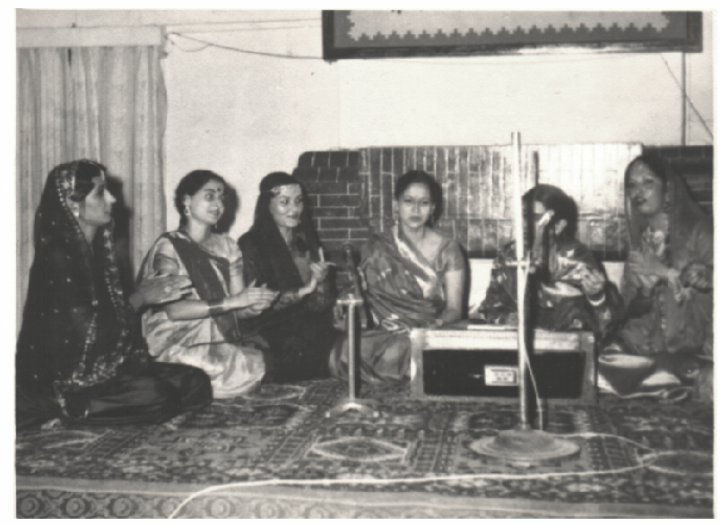A Feast of Memories: My Culinary Journey in the Indian Army Mess of the '80s and Remnants of British
- pghosh131426
- Jul 13, 2023
- 4 min read
Updated: Aug 23, 2023

The Legacy of the 4th Gorkha Rifles
As the daughter of an officer in the 4th Gorkha Rifles, my earliest culinary memories are deeply rooted in army life. The 4th Gorkha Rifles, a prestigious regiment formed by the British Army during the colonial era, carries a significant legacy that still echoes in the culinary traditions of the present-day army.

Impeccable Uniforms and Elegant Dining
I remember my father in his immaculate white regimental uniform adorned with medals and ribbons and my mother in her finest chiffon, sporting her signature string of garnets. The elegantly uniformed servers, the clinking of silverware, the murmur of conversation - the ambiance of the Officer's Mess still remains vivid in my memory.

British Influences in the Officer's Mess
The Officers Mess, with its distinct blend of British influence and Indian traditions, formed an integral part of our daily lives. Here, food was not just about sustenance but a vibrant language telling stories, carrying the weight of history, and serving as a symbol of unity. One of the strongest memories etched in my mind is the formal dinners at the Officer's Mess.
The Art of Formal Dining and Unforgettable Desserts
These dinners, showcasing the remnants of British traditions, taught us the fine art of dining from an early age. Children were occasionally invited, and for me, these were opportunities to practice our best etiquette – sitting upright, using a fork and knife properly, and patiently waiting for my favorite part of the meal – the dessert.
Caramel Custard
Ingredients:
1 cup sugar
1/4 cup water
4 eggs
2 cups milk
1/2 cup sugar
1 teaspoon vanilla extract
Instructions:
Preheat your oven to 325°F (165°C).
In a heavy saucepan, over medium heat, cook 1 cup of sugar and water until it forms a caramel syrup (light to dark amber color).
Immediately pour into a round baking dish, turning the dish to evenly coat the bottom and sides.
In a separate bowl, beat the eggs, milk, 1/2 cup sugar, and vanilla extract until well mixed.
Pour the egg mixture over the caramel syrup in the baking dish.
Bake in the preheated oven for 60 minutes, or until set.
Regardless of the main course, whether it was Pilao and Mutton Curry or something else, Russian Salad was always a mandatory inclusion in the meal. The creamy texture and delicate balance of flavors made it a beloved staple, a symbol of the British influence on our culinary habits.
Mandatory Russian Salad: A Symbol of British Influence
Regardless of the main course, whether Pilao and Mutton Curry or something else, Russian Salad was always a mandatory inclusion in the meal. The creamy texture and delicate balance of flavors made it a beloved staple, a symbol of the British influence on our culinary habits.
Russian Salad
Ingredients:
2 boiled potatoes
1 cup boiled vegetables (peas, carrots, beans)
1 apple
1/2 cup pineapple chunks
1/2 cup mayonnaise
Salt to taste
Pepper to taste
Instructions:
Dice the boiled potatoes, boiled vegetables, apple, and pineapple chunks.
In a large bowl, combine all the diced ingredients.
Add mayonnaise, salt, and pepper, then mix well.
Chill in the refrigerator for at least an hour before serving.
A significant event that I hold close to my heart was the Bara Khana, a grand occasion when the entire army unit of 700-800 men would come together for a meal. The meals always had Nepalese influences, a nod to the origins of the 4th Gorkha Rifles. Among the many dishes, my favorite was the Gorkhali Aloo Chutney, a delightful potato salad with roasted sesame.

The Bara Khana: A Taste of Nepal and Soldierly Camaraderie
A significant event I hold close to my heart was the Bara Khana, a grand occasion when the entire army unit of 700-800 men would come together for a meal. The meals always had Nepalese influences, a nod to the origins of the 4th Gorkha Rifles. Among the many dishes, my favorite was the Gorkhali Aloo Chutney, a delightful potato salad with roasted sesame. The dinners were always followed by a variety show where the soldiers performed various acts. With no women allowed, the soldiers dressed in drag for the female parts, adding a touch of humor and camaraderie to the evening.

Gymkhana Days: Fun, Games, and Delicious Consolations
The fun-filled Gymkhana days were brimming with a sense of communal camaraderie. We would participate in unconventional races, like the three-legged race, where partners had to coordinate their movements as they raced to the finish line, their legs tied together. There was also the hilarious and delightful jalebi race, where participants, with their hands tied, would try to eat a jalebi hanging off a pole. Although I wasn't particularly athletic, the consolations were sweet – literally. Samosas, vegetable cutlets, gulab jamuns, chicken patties, and cream rolls more than compensated for any lost prizes.
The Power of Food: Nostalgia and Narrative
Food can elicit nostalgia like no other. Each flavor, each texture, and each aroma can transport you back to good times, evoking fond memories and beloved stories. Through these experiences, the Army Mess played a pivotal role in shaping my culinary journey, providing a unique blend of influences from British, Indian, and Nepalese cuisines. Food, in its essence, is more than just a meal; it's a powerful narrative that continues to tell stories, carry traditions, and create unforgettable memories.







Comments